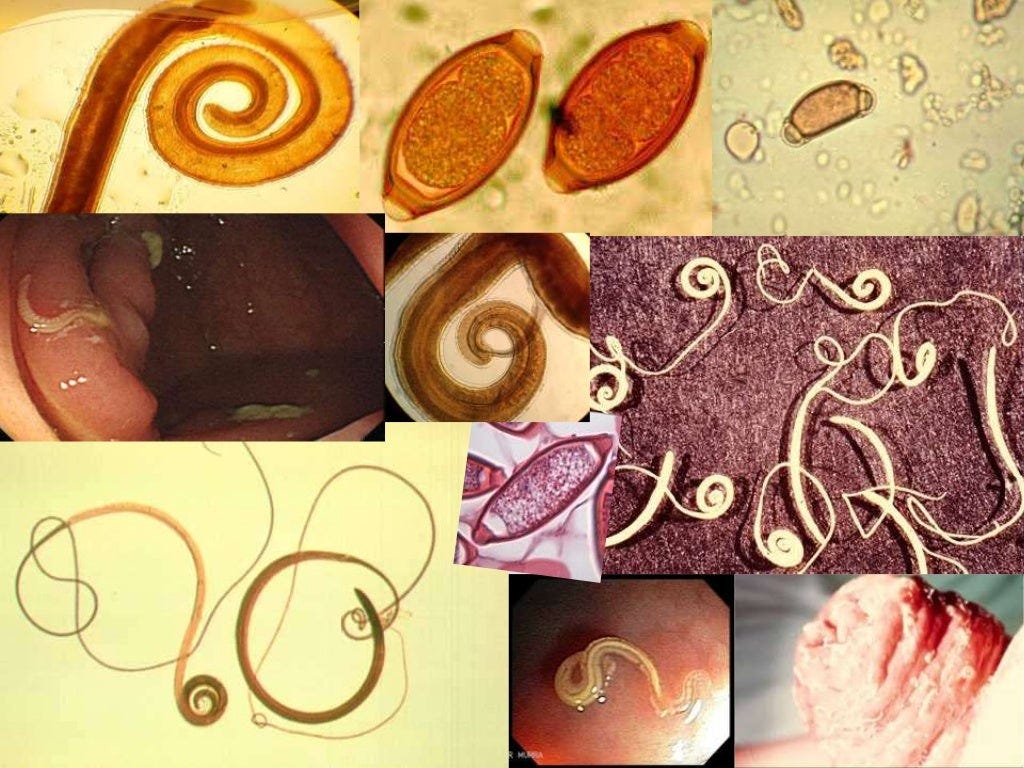Nearly a quarter of the world's population gets infected by helminths, parasitic worms that establish themselves in the intestine for extended periods. I reported on this topic in past newsletters:
Past newsletters
“It is well established that chronic infection/inflammation can lead to cancer and that includes parasitic infections. For example liver flukes can stimulate the growth of biliary tract cancers. But the opposite is also true. That is, infection with parasites can stimulate the death of cancer cells.”
On the other hand, parasites can induce an ‘anergy’ i.e., damp down inflammatory responses. In a recent animal study, extracellular vesicles created from the round worm Ascaris suum reduced inflammation in mice that suffered from colitis. During the parasitic infections, specific immune cells, known as virtual memory T cells, become activated and they express a surface molecule called CD22, which prevents an excessive immune reaction.
“Conversely, drugs that target and eliminate parasites report success in combatting even metastatic cancers. A 2008 study with SCID mice with P493-6 human lymphoma cell line lymphoma tumor burden, examined the drug fenbendazole [a drug used in animals to destroy hookworms, roundworms, tapeworms, parasites, and whipworms] in combination with nutritional supplements. Neither diet supplemented with vitamins alone, nor fenbendazole alone, caused altered tumor growth as compared with that of controls. However, the group supplemented with both vitamins and fenbendazole exhibited significant inhibition of tumor growth. The proposed mechanism of action is that the drug blocks the glucose in the cancer cells, depriving them of their main source of fuel.”
Swell solutions for swollen limbs. Latest info from lymphedema researchers
“The 2015 Nobel Prize in Physiology or Medicine went to three scientists who developed antiparasitic disease drugs. William C. Campbell and Satoshi Ōmura shared the prize for their discovery of the drug ivermectin. It is used in the mass treatment or prevention of two ancient scourges, elephantiasis and river blindness, that have plagued Africa for many centuries. Elephantiasis, a disease that affects tens of millions of people in Africa, is caused by a parasitic worm, Wuchereria bancrofti, [and Onchocerciasis, also known as river blindness, is a disease caused by infection with the parasitic worm Onchocerca volvulus.]”
Now we have a new fixed-dose oral tablet that combines albendazole and ivermectin, and it was shown to be safe and more effective than albendazole alone in treating Trichuris trichiura and other soil-transmitted helminths, according to a clinical trial.
Two recent papers examined the use of botanicals to augment the elimination of parasites and elucidated potential mechanisms of action for future targeting.
Keep reading with a 7-day free trial
Subscribe to BioMedWorks’ Newsletter to keep reading this post and get 7 days of free access to the full post archives.





